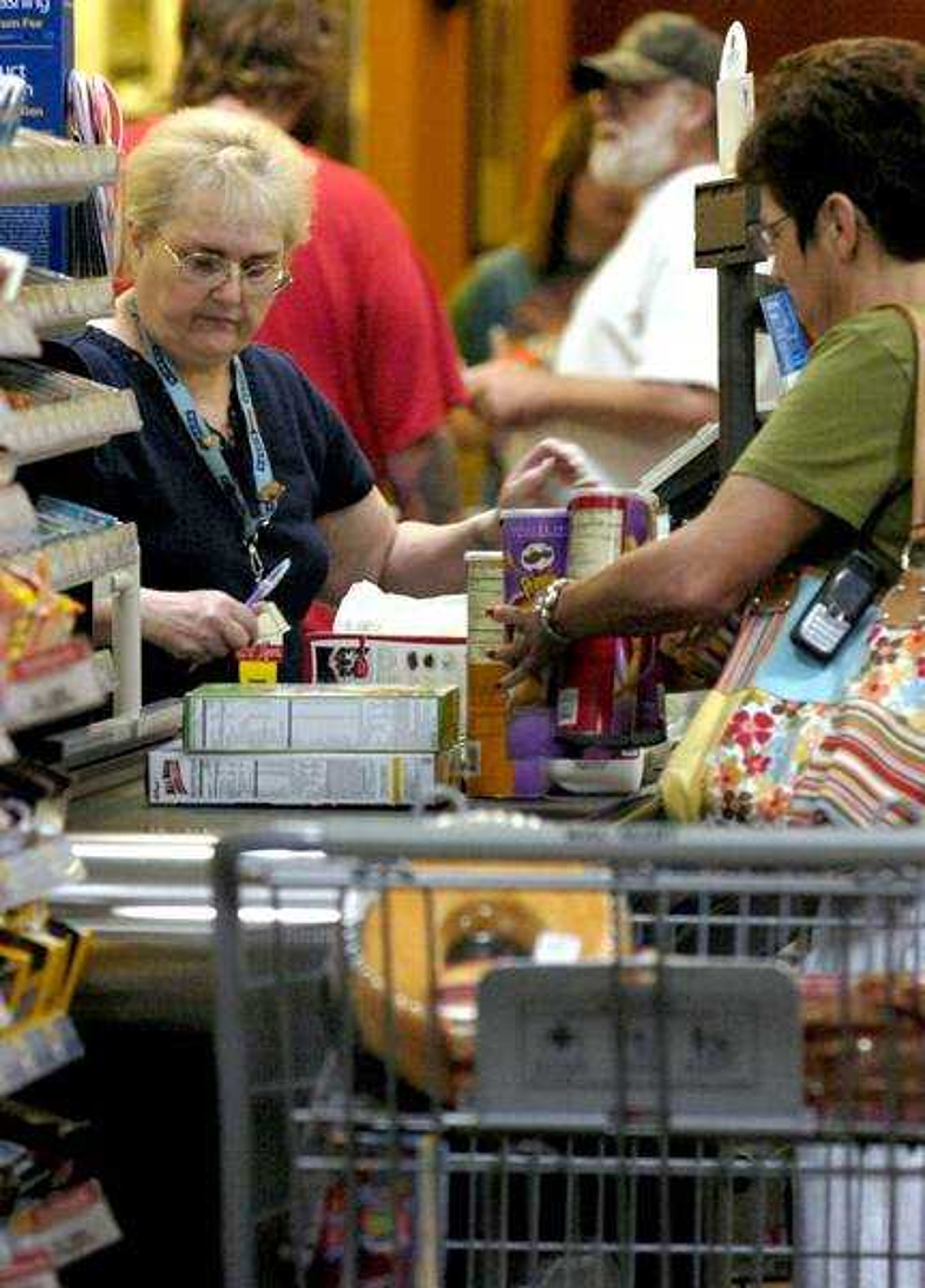Consumer prices jump more than expected
WASHINGTON -- The price of a quart of milk, a plane ticket and a host of other products rose in June at nearly the fastest pace in a generation, taking an even bigger-than-expected bite out of the buying power of Americans. In the latest shock wave to hit the economy, consumer prices rose 1.1 percent in June from the month before, far faster than the expected rate of 0.7 percent and almost double the reading from May, the Labor Department said Wednesday...
WASHINGTON -- The price of a quart of milk, a plane ticket and a host of other products rose in June at nearly the fastest pace in a generation, taking an even bigger-than-expected bite out of the buying power of Americans.
In the latest shock wave to hit the economy, consumer prices rose 1.1 percent in June from the month before, far faster than the expected rate of 0.7 percent and almost double the reading from May, the Labor Department said Wednesday.
The only time in the past quarter-century that monthly inflation has been that high was in September 2005, when prices jumped 1.3 percent, mostly because Hurricane Katrina shut down oil refineries and energy prices spiked.
Consumer prices are up 5 percent over the last 12 months, the fastest one-year change since 1991.
As prices rose last month, take-home pay took a hit. Adjusting for inflation, weekly wages fell 0.9 percent in June, the third straight monthly decline and the biggest drop in almost four years.
The news was the back half of a one-two punch on inflation. On Tuesday, the Labor Department reported that prices at the wholesale level were rising by the highest annual rate in 27 years.
The Consumer Price Index, which came out Wednesday, measures not just what Americans pay for goods but for other purchases, including services like health care and haircuts.
Higher energy costs led the way, with a more than 10 percent rise in gasoline prices. More expensive vegetables, dairy and beef pushed up food costs.
Core inflation, the figure that excludes energy and food to measure other costs, rose by 0.3 percent in June, the fastest rise since January. Airline tickets grew almost 5 percent more expensive, the biggest rise since the summer of 2001.
The report illustrates just how quickly prices are rising -- not that the economic squeeze is anything new to most Americans.
Marsha Marvel, 45, an elementary school reading specialist from Springfield, Ill., said she had created a weekly household budget to hold down expenses and the family was cutting back on trips and restaurant meals to save.
"This summer, I feel like I'm paying $10 into my gas tank every day, so we've really had to change our budget," she said. "We're just watching our money so much more closely than before."
Carla Civitate, 50, a Des Moines, Iowa, hairstylist, said she and her husband were also struggling with the soaring gas prices.
"We've adjusted our driving styles a lot with gas prices," she said, even though one of their two cars is a hybrid. "I just basically drive to work and home, and we try to do our errands en route."
The Fed released the minutes of its June 24-25 meeting, revealing officials were worried then about inflation and believed their next move would be to raise interest rates.
That would follow a period of aggressive rate cuts that were designed to keep the economy from sinking into recession because of problems in the housing market and the financial industry.
Still, private economists said they believed the Fed will not seriously contemplate a rate increase for many more months, worried about upsetting the fragile economy.
In Congress, Democrats seized on the inflation report to push a second economic stimulus package because the inflation risk is crimping the Fed's room to cut interest rates farther.
"We're now seeing danger for the economy on both sides -- growth is too slow and inflation is too high," said Sen. Charles Schumer, D-N.Y. He called for "mainstream, bipartisan solutions for our economy."
White House press secretary Dana Perino said President Bush was "very concerned about the impact high prices are having on Americans, especially those who are on lower incomes."
But the administration did not signal any increased willingness to consider another stimulus package beyond the $168 billion measure that is delivering payments to 130 million households.
Separately, the Federal Reserve said that industrial production rose by 0.5 percent in June, the best showing in nearly a year. Economists that primarily reflected the end of a strike at auto parts supplier American Axle, and forecast the rebound would be short-lived.
Connect with the Southeast Missourian Newsroom:
For corrections to this story or other insights for the editor, click here. To submit a letter to the editor, click here. To learn about the Southeast Missourian’s AI Policy, click here.






